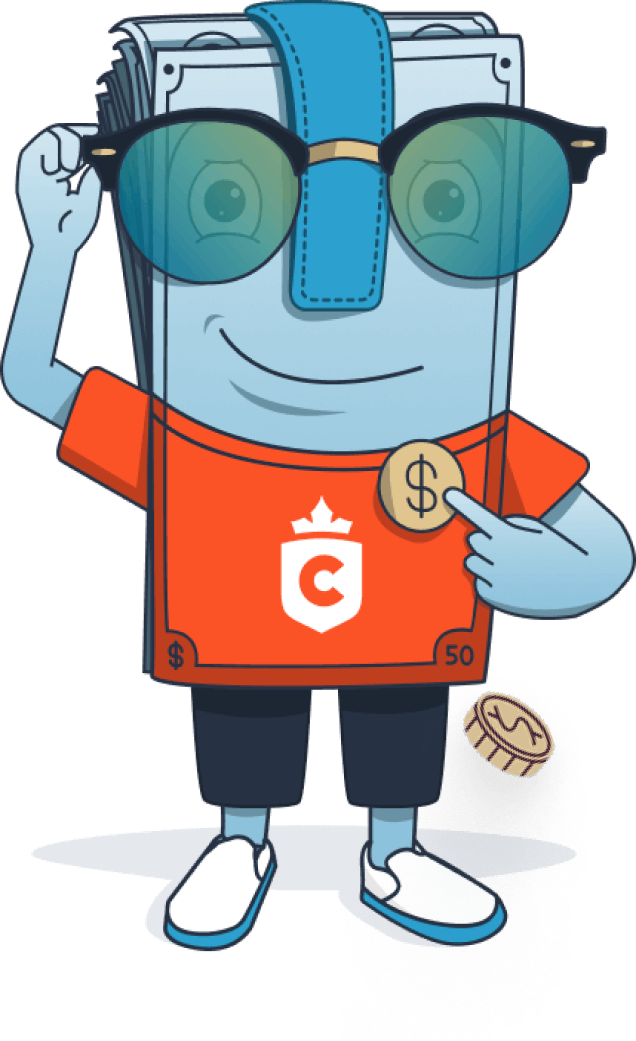

If you’ve just started being on your own without your parent’s financial support, you may be feeling lost.
How are you supposed to make an income to support yourself? How can you build up your savings? What should you be doing every single day to prepare for the future?
You may be asking yourself those questions over and over. Well, we’ve got you covered!
We’ve come up with eight money tips to help you navigate adulthood!
1. Record All Expenses
When trying to build up your savings quickly, the best way to go about doing that is by figuring out how much you spend on a daily basis. You should create or find a budget tracker to start the process.
On the tracker, you need to jot down every single expense you have. Yes, this includes your daily iced coffees. Each expense should fall under a specific category.
Once you have every expense in the tracker, you are able to add up how much you spend monthly.
Then ask yourself: Is there leftover money that I can save? Is there any category that I can reduce my expenses in, such as my daily iced coffee habit or restaurant spending?
Being able to see your monthly expenses right in front of you will help you create a savings plan and overall budget moving forward.
2. Find Ways to Cut Spending
Once you have created your budget tracker, you’re able to see everything that you spend. From there you can start narrowing down the difference between what you need and what you want.
This is where you begin to cut spending on unnecessary items or services.
Instead of going out to a cafe every day for a coffee, make your coffee at home in batches to save on extra expenses. Choose to go to a free concert in your area instead of a pricey one.
Double-check every subscription and membership that you have and ask yourself if you need them. Maybe you have a friend that would lend you their login info. If you don’t use them regularly, it’s time to call and cancel the subscription.
If you’re a foodie, you may find yourself ordering in or eating out a lot more than you think you should. Set a goal to only eat out once a week and if you’re tempted, add up how much your meal out would cost versus what you would cook at home. Begin writing down the difference in prices and over the course of the month you will see how much you’re saving by eating at home!
3. Pay Off Your High-Interest Debt
In your mid-twenties and early thirties, you may be dealing with student loan debt. If that’s the case, it’s important to make a plan to pay off your loans and debt. This is especially important if you are dealing with a loan or credit card debt that is creating high interest rates.
The longer you wait to pay off your high-interest debt, the more interest you will be accruing as well. This means that the longer you wait, the more you’ll have to pay in the long run.
Whether you chat with a financial advisor or figure it out on your own, you should make a monthly budget for how much you can feasibly pay off without creating more stress for yourself.
4. Do Not Overdo It on Your Credit Card
If you have a credit card, it may be tempting to charge everything on it since you technically only have to pay a monthly minimum. However, the more you spend money on your card that you don’t actually have will become stressful and problematic down the road.
Instead of overspending on your credit card, consider taking out a loan for bigger purchases. If you plan to buy a car or a home, you should be looking into home or car loans to help keep you from overspending on your credit card.
Although this is the smarter option for bigger expenses, you should be aware that you need to start paying off the loan as soon as possible. Most car and home loans will require a monthly payment right away, which is different than a student loan. When looking for how to pay it off, pay close attention to the interest rates for each loan and if how quickly you pay it off makes a difference with the interest.
These criteria can help you decide if you want to pay it off in a couple of years or a longer period like five years.
As a side note, if you have the means to spend on your credit card, do it! We’ll get more into that in a bit.
5. Set SMART Goals
Everyone can set a goal. You could say you wanted to go to every country in the next year.
Could you do it? Possibly, but there is a lot of other criteria that may get in the way.
By setting SMART goals, you’re ensuring that at the end of the day, your goal is met. Every goal should be:
- Specific
- Measurable
- Achievable
- Relevant
- Timebound
When you break your goals into these five categories, you will hone into what matters most to you. For instance, when it comes to saving money, you may want to save $4,000 in the next year. This goal is specific, measurable, achievable, relevant, and bound by time.
But how can we make it seem easier than this large sum of money? Looking at that large number could be daunting at first. You could break it down into every month.
Each month you would need to save about $330. So what is that per week? If we take a month to be about 4.5 weeks, you should be saving $74 each week.
That seems much more doable than the chunk of $4,000 that you will have obtained at the end of the year. That’s because you set a SMART goal and chunked it down into measurable and achievable numbers.
6. Start Investing When You Are Young
As soon as you start saving money, you should start investing. Whether you choose to invest in stocks, mutual funds, bonds, real estate, or something else, the earlier you start, the better.
This doesn’t mean save $5 and then invest it into penny stocks. If you want to try that, by all means, go for it. But you need to also make sure you are making smart investments that will seamlessly earn you money over the years while you continue to work and make other spendable money.
By speaking to a financial advisor or someone who works in the field, they can help you make smarter investments to help you save for the future.
Once you begin investing, you should start to diversify your portfolio. Invest in stocks in different industries to lower your risk.
7. Start a Side Hustle
When it comes to money-making tips, many people don’t ever suggest side hustles or gaining income from one of your hobbies. However, there are so many more ways to build an income than just through your main job.
If you have a hobby, consider making it a side hustle. For instance, if you love surfing, start offering surfing lessons to those in the local area.
Do you love painting? Start selling your paintings! The same goes for photography or drawing.
If you can provide services to others, there are many websites that can help you with that like Fivver or Upwork. You can also set up your own website, blog, or social media platforms to sell your services or products. As long as the word gets out, the money will start to flow in.
8. Choose Your Credit Card Wisely
If you are a savvy saver and smart spender, having a credit card can actually be very rewarding when it comes to saving more money.
While you spend money, you can actually be getting money back or racking up points. In turn, you can spend these points as cash.
With so many different credit card options out there, you should first consider your needs with the card. Some have fees – are you willing or able to pay these fees? Others are meant to have for specific reasons like travel or purchases from specific stores.
By assessing your needs and habits, choosing the right card will be beneficial for you in the long run as long as you continue to pay off your card in full.
Follow These Money Tips
If you’re looking to live a life without being concerned about your finances, these money tips will be your lifeline!
Make sure to budget, save, invest, and learn more about loans and credit cards. The more you read about money-saving tips and articles about your finances, the more you will understand your own financial situation.
If you are in a situation where you think you need a loan to make sure you stay out of credit card debt as step one of your financial plan, contact us today! We want to help you with your financial situation and get you going in the right direction!





